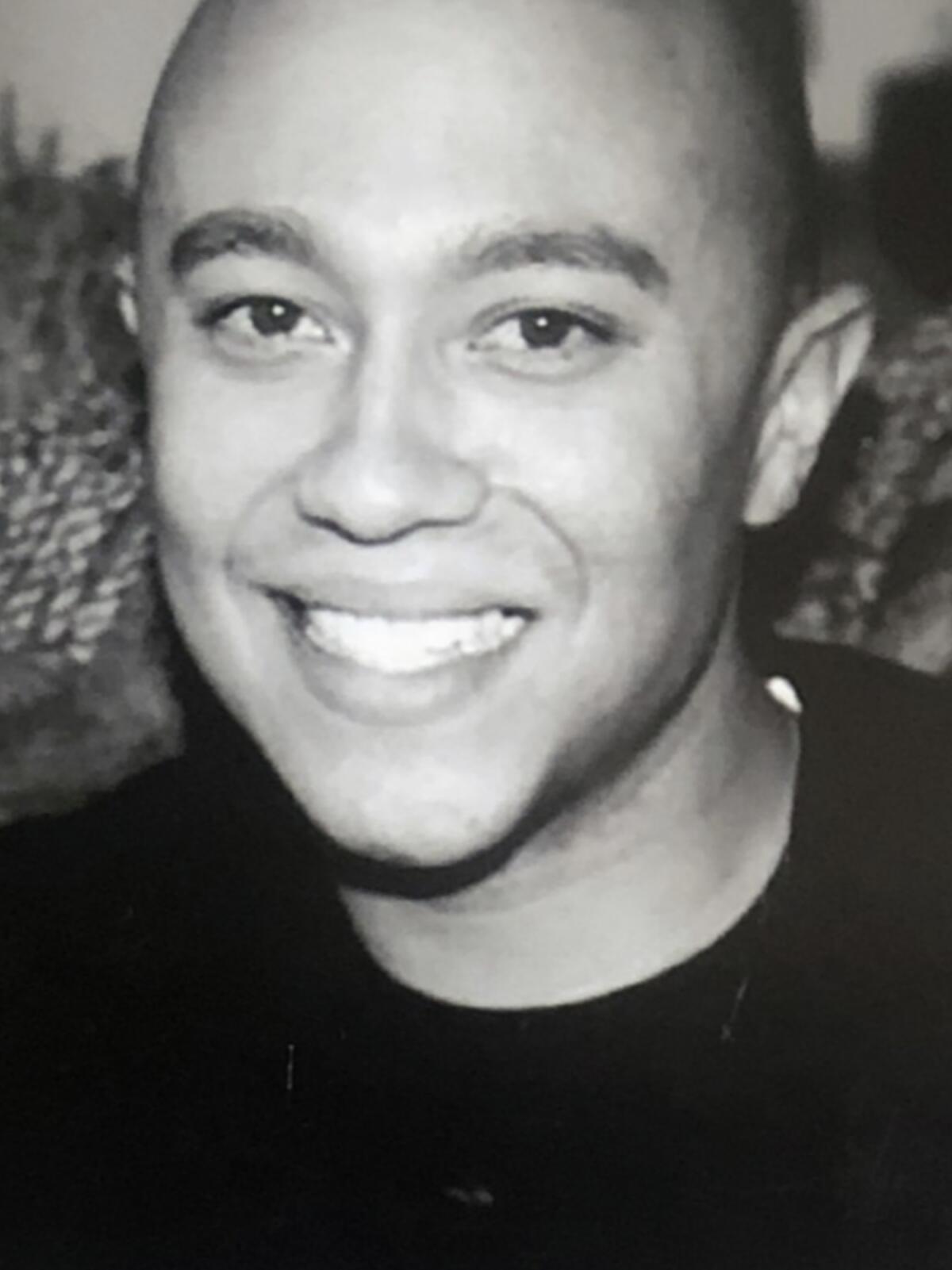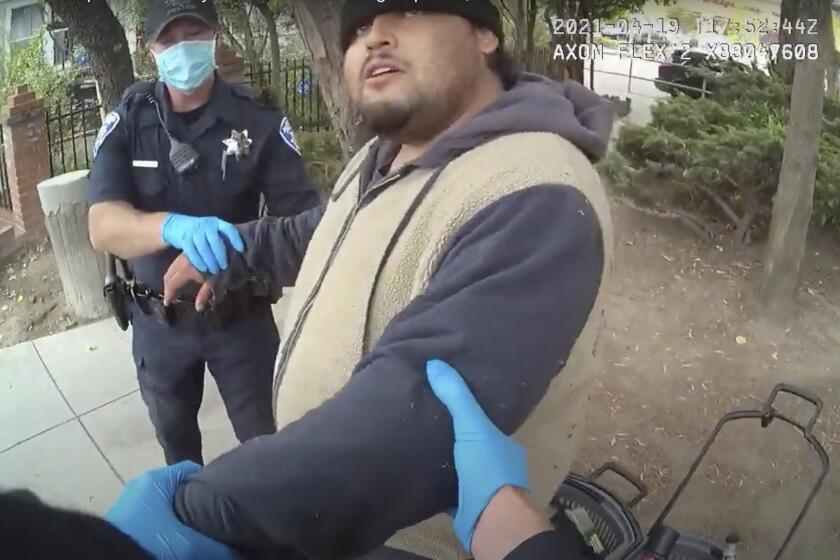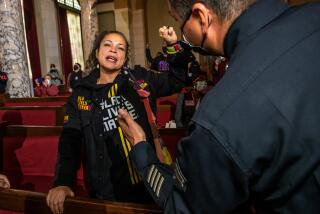Jury awards family of Black man nearly $2.3 million after death in Anaheim police custody

After a six-week trial in which jurors heard how Anaheim police officers put so much weight on a Black man that he could not breathe, a jury found they used excessive force and were mostly to blame for his death, and awarded his parents nearly $2.3 million in damages.
Christopher Eisinger, 35, died in an encounter with police March 12, 2018. Officers responding to reports of a person trying to break into cars at a mobile home park just after midnight spotted the man, who had a history of mental health struggles. He ran before several officers pinned him to the ground.
Attorneys representing Eisinger’s mother and father accused officers of ignoring his desperate cries that he could not breathe as they piled on. The lawyers also compared the case to the killing of George Floyd by a Minneapolis police officer. Three Anaheim officers’ body cameras captured much of the encounter with Eisinger.
Attorney Eric Dubin, who represented Eisinger’s father, told jurors that one officer shoved his knee into Eisinger’s sternum while he was on his back, then officers flipped him onto his stomach and placed knees on his lower back and neck. The attorney said Eisinger’s last words were “I can’t breathe.” Dubin added, “All the training went out the window that night.”
City lawyers argued that the officers used reasonable restraints and that video evidence showed officers never placed a knee to his neck. They also argued that medical evidence showed existing heart and health problems and Eisinger’s history of drug use led to his death. The city disputes that he said, “I can’t breathe,” although the body-cam video seems to catch him slurring those words.
Mario Gonzalez can be heard saying, ‘I didn’t do nothing, OK?’ before losing consciousness. Family members compare his death to George Floyd’s.
Jurors deliberated for nearly a week before reaching the verdict, which placed 78% of the responsibility for Eisinger’s death on the officers and the remainder on Eisinger, who was living on the streets at the time.
The civil case came after an investigation by the Orange County district attorney’s office found that the police officers were not criminally responsible for Eisinger’s death. The family had sought $30 million in damages.
According to prosecutors, one officer pinning Eisinger down with a knee ordered him to “stay down,” and a struggle ensued, during which Eisinger grabbed at an officer’s Taser. An officer on the body-cam footage can be heard saying, “Stop grabbing my Taser.”
Dubin said Eisinger could be heard on video saying, “I can’t breathe. Pretty sick, pretty sick. Dude, pull me up.” The attorney argued that Eisinger was not resisting attempts to handcuff him but fighting to breathe as officers placed all their weight on him.
During the trial, Dubin questioned the coroner’s forensic pathologist who performed the autopsy and concluded that Eisinger had an enlarged heart and suffered from 70% to 75% artery blockage. The pathologist found the cause of death was sudden cardiac arrest due
to heart disease and the effects of methamphetamine abuse. The pathologist testified that she knew there had been a struggle but did not know specifics.
Attorney Annee Della Donna, representing Eisinger’s mother, argued that the officers put their knees and body weight on Eisinger, resulting in his death, and that Eisinger suffered five bone fractures to his face.
Attorney Steven Rothans, who represented Anaheim, repeatedly emphasized to jurors the role Eisinger’s heart disease and use of narcotics played in his death along with the physical exertion of the struggle. He also said there was no evidence that Eisinger’s race played any role in the officers’ use of force.
Rothans said there were no injuries on Eisinger consistent with heavy body weight on his neck. And there was no evidence of burst blood vessels in the eyes from choking, he said.
Anaheim officials said they disagree with the verdict. While “our hearts go to the Eisinger family,” they said, the city is considering next steps. “At all times, our officers acted responsibly in their duty to uphold public safety. At no time did they use force that could be seen as excessive for the challenging situation they faced,” the city said in a statement.
The city rejected the comparison to the killing of Floyd, adding: “This case was unique in facts, circumstance and people. Trying to tie this incident to what we saw in Minneapolis does a disservice to all involved.”
City News Service contributed to this report.
More to Read
Sign up for Essential California
The most important California stories and recommendations in your inbox every morning.
You may occasionally receive promotional content from the Los Angeles Times.











